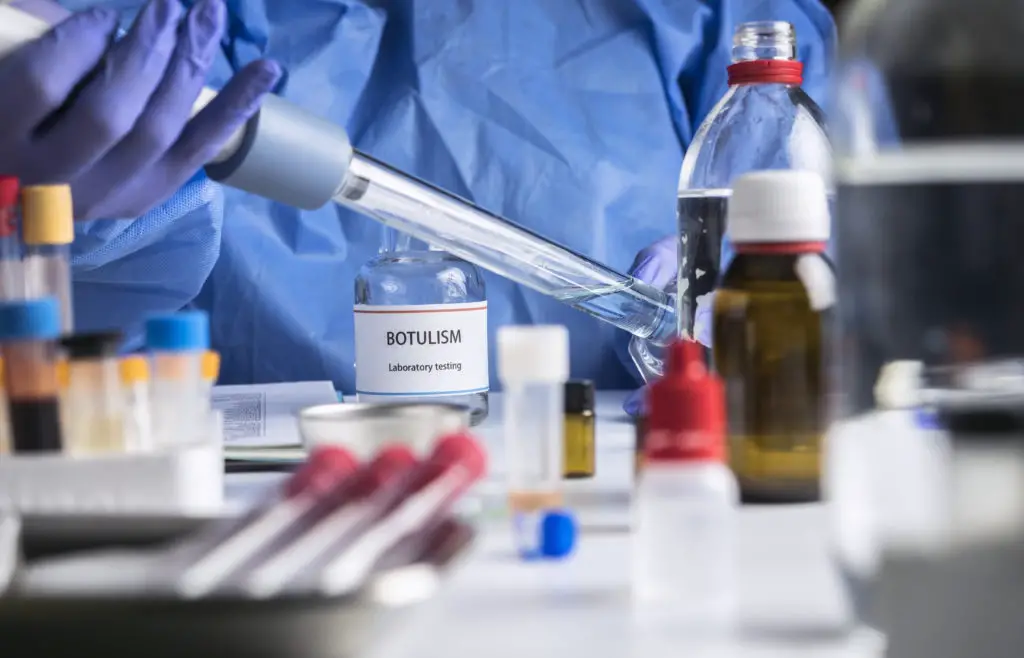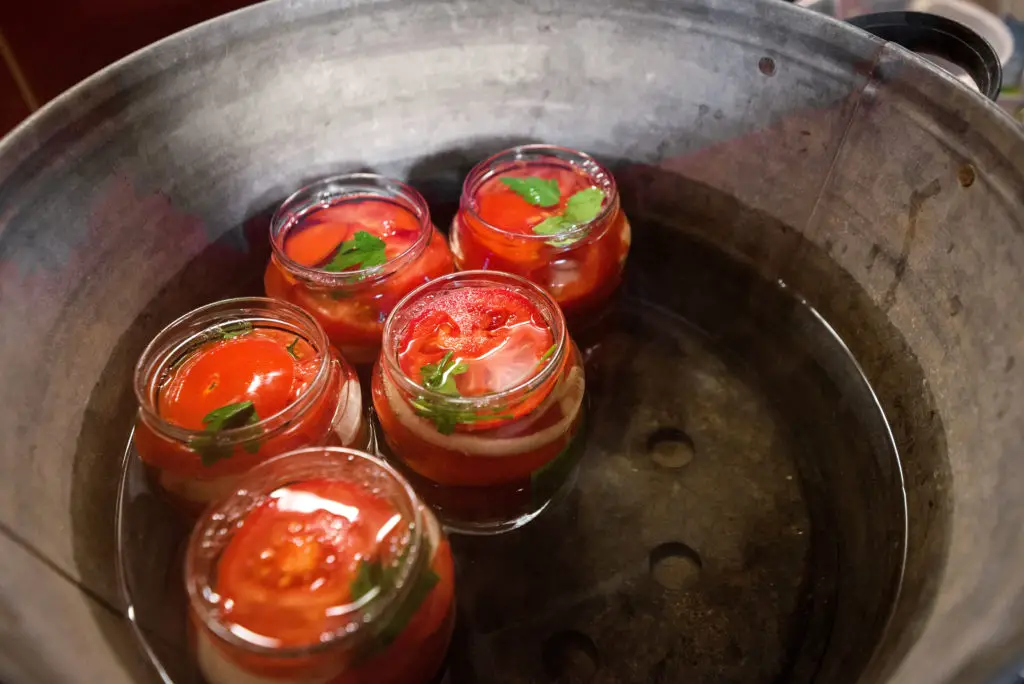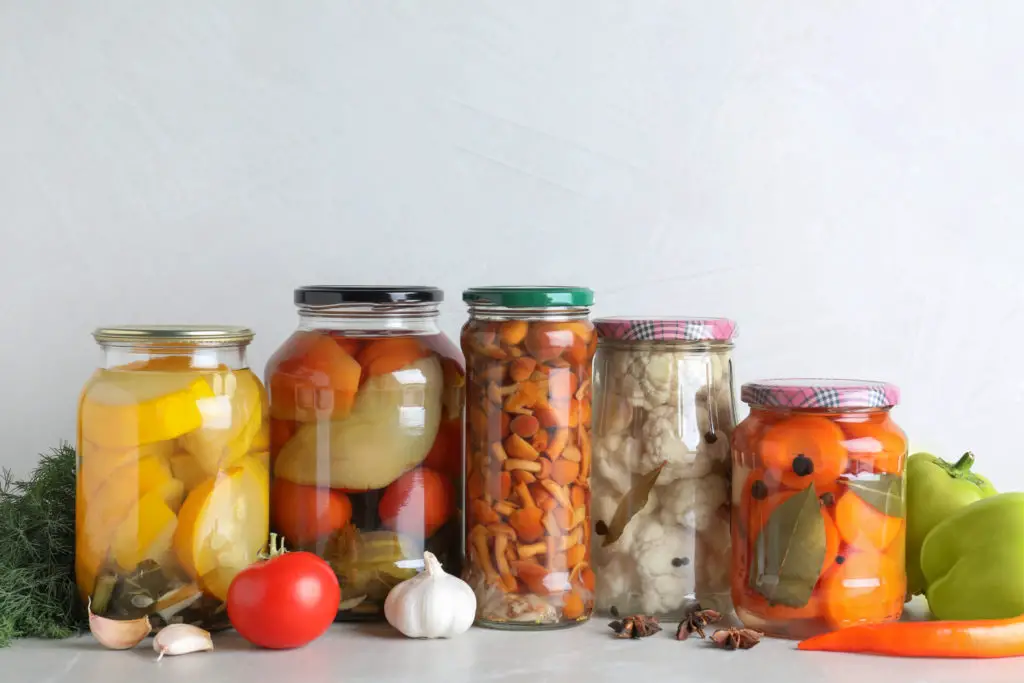
Aside from cooking up your favorite meals at a faster rate, are there any other benefits to using pressure cookers ? Does pressure cooking kill bacteria? In many cases, cranking up the heat can kill off different types of bacteria that may be lurking in your food, however, in order for it to be more effective, you would need to bring it up to a certain level of pressure and maintain that pressure for a determined length of time.
Most people will play it safe and resort to pressure canning foods since these foods are processed at a very high temperature, unlike water bath canning. However, there are some great ways to safeguard you and your family from harmful bacteria when using your pressure cooker, which I’ll discuss below.
Does pressure cooking kill bacteria? Yes. Because it cooks food using a higher temperature than even boiling water, which allows it to effectively kill off most types of bacteria. It can also kill botulism if you cook the food using a fifteen PSI pressure setting for a period of thirty minutes.
However, since not all foods will be cooked at this higher temperature setting, you cannot use a fifteen PSI pressure level every time. This will ultimately depend on the type of food you’re cooking and the length of time and temperature settings the recipe calls for. Ultimately, it will kill off more types of bacteria than other cooking methods such as pan-frying and boiling.
Table of Contents
What Can Kill Bacteria?
Food poisoning is a common concern, especially when you’re trying out new cooking methods, such as canning or pressure cooking. But if done correctly, and if the food is cooked at the right pressure and temperature, using a pressure cooker is perfectly safe and comes with many benefits such as retaining a food’s nutrient content, not to mention its ability to cook food seventy percent faster than other traditional cooking methods. But if you’ve never used a pressure cooker before, then you may have concerns concerning how safe it is and whether or not it can kill off bacteria as boiling can.
Most people know that high temperatures can eliminate bacteria. Which is why food is cooked in the first place, to expose it to extremely hot temperatures to ensure it’s safe to eat. Doing so will destroy many different types of germs that have found their way into your food.
How Bacteria is Destroyed

High pressure happens to be one of the best ways to kill off food-borne germs. Exposing food to this type of high-pressure environment can be very effective. But it’s a myth of sorts that pressure cooking can sterilize your food, like how food is sterilized on a commercial level.
However, pressure cookers do have the ability to sterilize foods and kill off many different strains of bacteria, but only if the cooker is able to reach a PSI of fifteen for a period of thirty minutes. Yet, many models can’t reach that PSI level, at least not for the length of time needed.
Most pressure cooker recipes don’t require the food to be cooked for a period of thirty minutes, and because of this, you can’t be confident that the food you’ve cooked has been sterilized.
Just like boiling food on your stovetop, a pressure cooker will kill most of the bacteria that are responsible for food poisoning including E.coli, salmonella, and more.
The high level of pressure does mean that it can kill off more bacteria compared to boiling food. But what about botulism? This is one nasty bacteria that can wreak havoc in your digestive tract. In fact, exposure to this bacteria can also lead to death.
Does Pressure Cooking Kill Botulism?
Yes. But you need to use a pressure cooker that can handle the required PSI setting, such as the T-fal Pressure cooker and pressure canner. Top of the line models will offer more precise temperature and pressure setting controls, which will give you the ability to cook food for a longer period of time using the type of environmental conditions that are required to kill botulism.
Botulism is a type of illness that’s caused by the botulinum toxin that’s produced by bacteria. It tends to thrive in conditions with low levels of oxygen. Because of this, it’s even possible for it to grow like wildfire in sealed cans. This toxin can attack the body in a few different ways: interaction with a wound, through food, and digestive tract colonization. You may have read about botulism when learning about pressure canning.
What Temperature Will Kill Botulism?
Botulism can be killed if it’s exposed to a temperature of two hundred and fifty degrees or more. If the heat doesn’t reach this minimum temperature, then prolonged exposure to intense heat is necessary to kill it. In a pressure cooker, the setting must be turned up to fifteen PSI before the water turns to steam. This will kill botulism but it must maintain this temperature for thirty minutes.
Will a Higher Temperature Impact the Quality and Taste of the Food?

No. In the past, people initially thought that this cooking method would zap food of its nutritional value because of the level of pressure and high temperatures used in this environment. However, there have been many studies that have shown us that this type of cooking is one of the best techniques in terms of preventing nutrient loss.
The likelihood of the nutrients being preserved with this cooking method is higher considering the food is cooked at a much faster rate. Essentially, it’s not the temperature used but the length of the cooking process that really matters. Additionally, since water consumption is much lower with this process, the nutrients in meats and veggies are more likely to remain intact.
Properly Sterilizing Your Food
Boiling food in water isn’t going to kill botulism, although it can kill other types of bacteria. This means that traditional methods of cooking aren’t usually enough to kill this toxin. However, it will die at a higher temperature in a pressure cooker. The toxin creates spores that allow the bacteria to survive other methods of sterilization.
These spores are so tough that they can handle boiling water and colder temperatures, easily. However, that doesn’t mean that this bacteria cannot be killed. There are actually a variety of ways this toxin can be killed, such as bleach and sodium. However, you can exactly add a little bleach to your food.
Heating the spores to a certain temperature will kill them. Typically, these are the types of temperatures that a pressure cooker is capable of. However, since some models work at different temperatures depending on the type of food that’s being cooked, you may not be able to use the required temperature to kill off botulism. As an example, wet foods, such as stews, are cooked at a max of one hundred degrees.
Related Questions
Is Pressure Cooking Unhealthy?
No. Research has shown us that pressure cooking is actually a more healthy alternative to frying and boiling foods. In fact, it can work to preserve nutrients that are heat sensitive, more so than any other type of cooking method since when you pressure cook food it significantly shortens the cooking time.
Is Pressure Cooking More Efficient?
Yes. Boiling, baking, and cooking on the stove will take both energy and fuel. Boiling is much faster when there’s more pressure above the water than elevated temperature. Because of this, cooking with a pressure cooker is much faster since steam will be trapped inside the pot, causing the heat to increase by as much as thirty degrees.
The heat can permeate through the food evenly, allowing it to cook at a faster rate without negatively impacting the texture, flavor, or nutrients. Essentially, using this type of cooking method can cut cooking time by as much as seventy percent.
Are Pressure Cookers Safe?
Modern models are perfectly safe. In the past, there were many accidents involving a pressure cooker exploding because of the built-up pressure. Today’s models come with many safety features that will allow the pot to automatically vent off any excess pressure and steam, preventing that type of serious accident from occurring. If you have an older model pressure cooker that doesn’t come with a vent or pressure plug, then I recommend upgrading as soon as possible.
Final Thoughts
Does pressure cooking kill bacteria? Yes. It can kill most types of bacteria, however, when it comes to botulism, you’ll need to cook the food for a period of thirty minutes at a pressure level of fifteen PSI. unfortunately, it’s not possible to set a pressure cooker at this level every time you use it since different dishes can require a lower level of pressure.
Because of this, its ability to kill botulism will depend on the food you’re cooking in the pressure cooker. If you want to be one hundred percent sure that the food you prepare is safe, I recommend purchasing the best pressure canner, which is designed to destroy botulism and is a much safer preserving process compared to other canning methods used. Additionally, many models can also work as pressure cookers, so you’ll enjoy the best of both worlds.
Originally posted 2019-10-14 09:36:40.


![7 Best Island Punch Pucker Substitutes [ALMOST Identical]](https://wowcookery.com/wp-content/uploads/2022/05/island-punch-pucker-90x75.jpg)
![10 BEST Luxardo Bitter Bianco Substitutes [ALMOST Identical]](https://wowcookery.com/wp-content/uploads/2022/05/luxardo-90x75.jpg)







